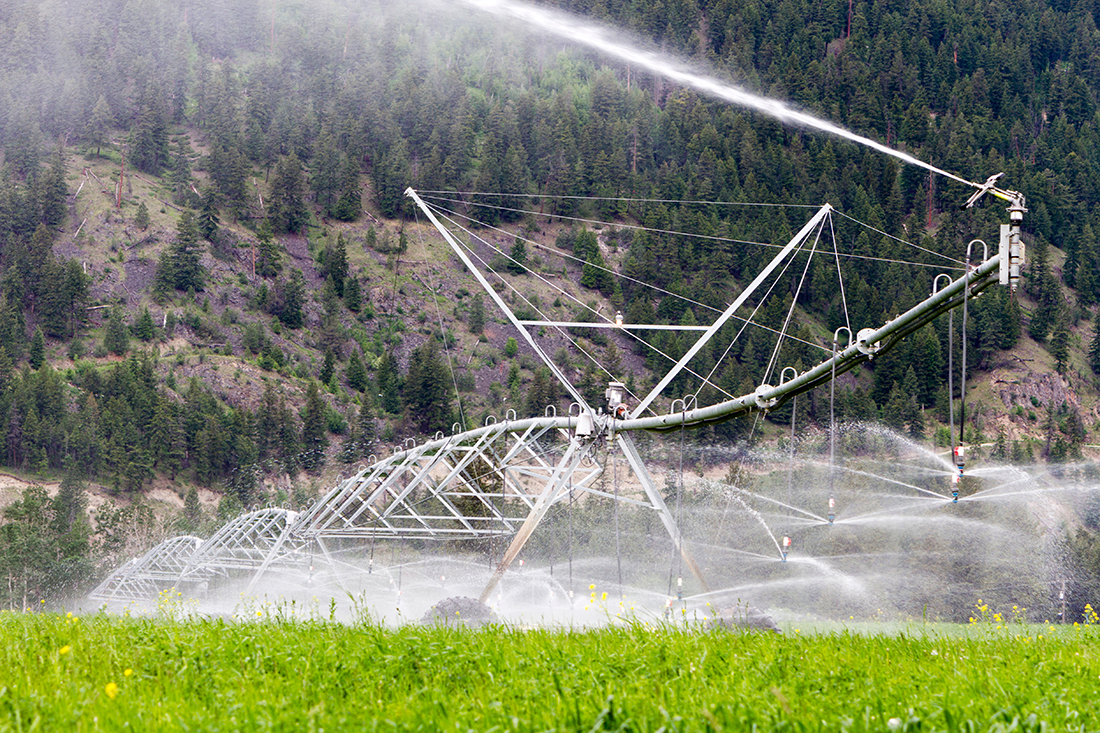VICTORIA – The province’s proposed watershed security strategy is big on local governance but short on protections for agriculture, say critics of an intentions paper released March 6.
“This is a very complex, high-level document,” says Elaine Stovin assistant general manager of the BC Cattlemen’s Association. “But it contains very little actual policy on how the intentions will be carried out and as such it will be difficult for individual farmers to respond to without further explanation from the government.”
Prepared by the BC Ministry of Water Land and Resource Stewardship as it assumes responsibility for water use planning, the intentions paper (available at [engage.gov.bc.ca/watershedsecurity/]) outlines five goals, including the enabling of new approaches to watershed governance; aligning water laws and policy with the UN Declaration on the Rights of Indigenous Peoples (UNDRIP); building a strong and accessible foundation of water science and knowledge; applying holistic approaches to watershed management and ecosystem protection; and ensuring the right balance of water supply and demand at the watershed level to ensure the quality and quantity needed for people, the environment and the economy.
These intentions are supported by 16 strategies, led by efforts to “enhance local watershed governance by establishing collaborative processes and accelerating a watershed level program that supports the use of governance tools for watershed security such as water sustainability plans.”
Stovin says the water sustainability plans as outlined in the Water Sustainability Act will be useful tools for planning if they’re similar to Forest Landscape Plans.
“Forest Landscape Plans should be extremely valuable to our province as this is the first time in a very long time they are actually doing landscape- level planning,” she says. “We support bringing all stakeholders together to plan around watersheds, but as yet there is a lack of direction on how those plans will be developed.”
There is a risk that agriculture will take a back seat to other priorities within a watershed, however.
The province has dropped plans for a livestock watering regulation, leaving the matter for individual water sustainability plans to address. While this leaves room for local considerations, Stovin fears that agricultural water use could rank lower than others.
“The reference to addressing existing and emerging regional pressures and risks could make us vulnerable,” she says.
The BC Agriculture Council has been involved in the watershed security strategy discussions since the release of an initial discussion paper in January 2022, says BCAC policy director Paul Pryce.
“We are hopeful that when the actual strategy paper comes out there will be a chapter that really spells out how to create an agriculture water reserve and make that an important first step in the creation of a water sustainability plan,” he says.
The intentions paper has a strong emphasis on reconciliation while agriculture has a lower profile, says Summerland apple grower and BC Fruit Growers Association water issues representative Katie Sardinha.
“The reconciliation piece is extremely important, and I have a lot of hope that there will be a long-term approach to this planning,” she says. “But I see very little in the document that addresses food security.”
A bright point is the potential for a more flexible approach to water licensing, a contentious issue for many growers following the province’s move to regulate groundwater use in 2016.
“The reference to a more flexible licensing system may support growers to consider alternate crops if they are not bound to the current license by crop for their water licences,” she says.
BC Cattlemen’s supports the reference to capture and storage options for water infrastructure.
“We have long promoted more water storage through ponds and dugouts,” notes Stovin. “We knew that water metering was coming … but we are concerned about the complexity of an on-line reporting tool and how an individual farmer’s information will be shared.”
This proposed strategy is an extremely ambitious initiative, says Oliver grape grower Hans Buchler, a member of the BCAC water security and management committee. “It places enormous pressure on First Nations to be involved in water sustainability plans while not providing a script for that process. I hope that it can be set up for success.”
The province welcomes feedback on the paper until April 17, and Stovin says the participation of farmers and ranchers is crucial.
“This is an intentions paper and from this they will develop strategies,” she says.


 Crossroads ahead for BC farmland
Crossroads ahead for BC farmland